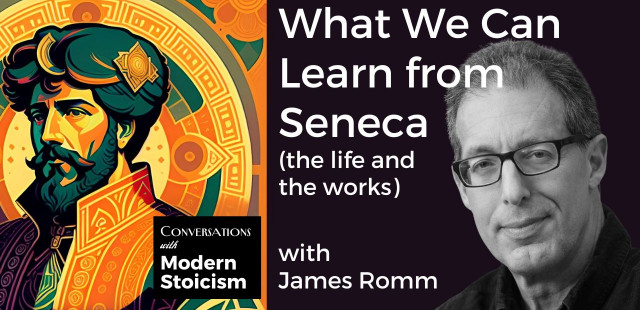The big STOICON 2021 conference is coming up soon on October 9. If you don’t have your ticket for the event yet, you can click here to get it (the ticket price is any level of donation you’d like to make). We’re continuing our established tradition of publishing interviews with the Stoicon speakers, workshop providers, panelists, and organizers. That way people interested or planning to participate in Stoicon 2021 can get to know them a bit before the conference. This interview is with Kathyrn Koromilas, who will be speaking at the STOICON event!
To see the schedule for Stoicon, or to get your ticket for this event – donations for tickets support the continued work of Modern Stoicism, Ltd – click here and you will be taken to the Stoicon 2021 Eventbrite site.
We’re very happy to have you here. Please introduce yourself and your work to our readers.
Hi! I write and I teach and I sometimes explore how Stoicism might inform and enhance creative living. I live in Scotland and on Zoom. I lead the Stoic Salon, a group dedicated to reading and writing with the Stoics, I host The Stoic Salon Podcast where I chat with women about life, love, work, play, the universe, and Stoicism, and I’m co-organising Paths to Flourishing the women’s conference. You might know me from my “Journaling with the Stoics” presentations, workshops, and my 28-day journaling challenges.
What first interested you in, or attracted you to Stoicism?
I first ‘met’ the Stoics off-campus during lively conversations with my friend Dr Edward Spence. Ed’s a philosophy professor, originally from Zeno’s hometown, and we’d meet at To Steki Taverna in Sydney just down the road from the university where I was studying philosophy (of the armchair, not the practical, variety). We mostly talked about Socrates and Zeno and performed dialogues on the little stage in the taverna. That was our Stoa. This was the Nineties and Ed has since founded the ‘Theatre of Philosophy.’
I didn’t read any more of the Greeks after Socrates until I ended up living in Preveza on the west coast of Greece only minutes from the ancient city of Nikopolis, where Epictetus held his own philosophy classes. How could I resist that invitation? Two-thousand years ago, I might never have had the opportunity to be in a class with Epictetus and Arrian, so I would walk amongst the ruins, the Enchiridion in my hands, speaking with the great teacher as if he were right there (or at least that’s how I remember it!). But I didn’t find the text or content very appealing nor very relatable. I was interested in other questions and so, instead, I wrote a novel, Palimpsest, inspired by Epictetus and his school at Nikopolis but my philosopher ended up being the exact opposite of a Stoic.
I then forgot all about the Stoics until, years later, I found myself struggling with a persistent fear of death. The Google algorithms lead me to Donald Robertson, Stoic Week, and the Modern Stoicism community. But it wasn’t until I read Gregory Hays’ introduction to his translation of Meditations and, really, not until I read Pierre Hadot’s Philosophy As a Way of Life that I was able to find an exciting way into Marcus Aurelius and then, finally, some of the other Stoics. But it’s Marcus Aurelius I find most relatable. It’s his way of constantly going over and over the same troubling issues that resonate with this overthinker and also signals that we are all, always, works in progress. This is not a philosophy you learn once and for all, you’ve got to keep studying, keep training, every single day, over and over again. It sounds hellish, but it’s the only thing that makes sense.
How does Stoicism figure into your work?
As someone who writes and helps others to write, I often refer to books on writing. Some of the best books don’t talk about writing craft at all but talk about the writer’s mindset. These authors sound like what Epictetus would sound like if he were an ex-Hollywood scriptwriter. I’m talking about Stephen Pressfield, of The War of Art and Nobody Wants to Read Your Sh*t: And Other Tough-Love Truths to Make You a Better Writer, and Julia Cameron, of The Artist’s Way, who basically work with you on overcoming resistance and any other obstacles in your head that stop you from showing up and just doing the work you have to do. For writers, that means sitting down and writing.
Back in the 1930s, Dorothea Brande, in Becoming a Writer, recognised that the root problems for any writer were not problems with technique or talent. They were personality problems: a writer can’t get started, or if they do get started they soon lose focus or confidence or purpose or meaning. Brande and the others address these personality problems and get writers to own their role as a writer and then to just be a writer and to do the writer’s work.
This is Epictetus’s ‘role ethics’ for writers. You work out that one of the roles you play in life is being a writer. Then, it’s simply your duty to show up and perform your role to the best of your ability. You don’t have to win the Nobel Prize for Literature. In Discourses, Epictetus says something like: ‘Hey, I’m never going to be greater than Socrates, but I’ll keep doing philosophy. That’s who I am.’
I am a host at Writers’ Hour (of the London Writers’ Salon) and we often read some words of wisdom from the Stoics to get us inspired before we sit down to write silently, together, for an hour, four times a day. We call Stoic advice, tough love. But actually, it’s gentle love. It’s saying, all you have to do is be the thing you were born to be and do the thing you were born to do. It’s a relief. It’s totally doable.
How has Stoicism affected or improved the way you live your life?
Stoicism has made me more intentional and attentive. I also care about people and the planet in a different way than before. I care about people in a less complicated way, maybe. But also in a more essential way. Sometimes, I think there’s been a mindset shift from me caring “about” others to me caring “with” others. We’re all in it together, we need each other not only to survive but to live well, to flourish. Care is like a conversation between us. Take some of Seneca’s letters, for example. He can’t get to where he needs to get to without the exchange, without the interlocutor. You have to recognise that you can’t flourish, you can’t live well unless you live and care for and with others. Hate, anger, grudges, fear: they just make things more difficult for us. I think Stoicism provides a straightforward roadmap for living well with others and thereby improving life overall.
If you had to pick one, what would you say is the most important aspect of Stoicism?
For me, it’s learning how to pay attention to what is and what matters and what depends on me and not to mix up my stories here.
Do you have a favorite Stoic passage or quote? What is it, and why is it your favorite?
Τὴν ὑποληπτικὴν δύναμιν σέβε. ἐν ταύτῃ τὸ πᾶν, ἵνα ὑπόληψις τῷ ἡγεμονικῷ σου μηκέτι ἐγγένηται ἀνακόλουθος τῇ φύσει καὶ τῇ τοῦ λογικοῦ ζῴου κατασκευῇ, αὕτη δὲ ἐπαγγέλλεται ἀπροπτωσίαν καὶ τὴν πρὸς ἀνθρώπους οἰκείωσιν καὶ τὴν τοῖς θεοῖς ἀκολουθίαν.
That’s Meditations Book 3.9. I love this invitation to awe, to be in awe of the power of my mind. Some translations say revere, worship, honour, cultivate, respect your mind. But for me, it’s awe. We think we’ve demystified a lot of what’s going on in our brains because science is able to explain so much, though quantum physics reveals how much we don’t know. Our brain is a magnificent, mysterious organ but we treat it so badly! We don’t nourish it anywhere near as adequately as we should. And by ‘nourish,’ I mean dietary nourishment plus all the other sources of nourishment: contemplation, study, dialogue with others, and rest. We’ve got to take care of our brain because it’s the only organ that will help us live a sane and happy life; it’s our key to freedom from rash judgements which cause all the problems in the world, it’s our key to living well together, it’s our key to living well generally.
What topics do you plan or anticipate talking about at Stoicon? [for organizers/moderators: “What role are you playing in the Stoicon conference?]
I’ll be talking about death contemplation. For me, it’s important to get a grip on death because it just makes everything in life simpler and clearer. A daily death contemplation keeps all sorts of madnesses away! This brief, daily activity reminds me (because believe it or not, I forget!) of my nature as a human being: I am transient; I am going to die; I may die now, tomorrow, next year. So, I contemplate this for a brief few moments every single day and then the only question is, “How will I live today?”
If I can accept my imminent personal death without fear or expectations (“maybe I’ll be lucky and live to 100 like my granny”) and if I choose to live in “a principled way, with diligence, energy and patience” (that’s Hays translating Book 3.12) and if I manage what distracts me, pay attention to what I’m doing now, and find fulfilment in that thing, then I can live well. I can be joyful. Happy. We’ll chat more about this at Stoicon.
Are you excited about Stoicon 2021? Is it Stoic, or not, to be “excited”?
OF COURSE, I’M EXCITED!!! I am a fully functioning human being! What did you expect? Look, I’ve seen what it looks like when you don’t get excited about things and that’s not Stoicism. That’s depression.
Do you have anything else that you wanted to mention while we have the chance?
Yes! Please stay in touch on Twitter @KathrynKoromila and @WriterStoic, and on Instagram @KathrynKoromilas as I’d love to invite you to some reading and writing challenges coming up. Look out for my #blackoutmeditations challenge in October and my “28 Joyful Days of Stoic Death Writing” in November.




